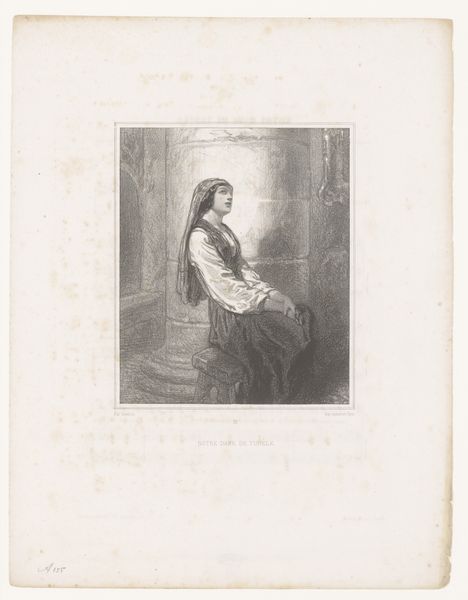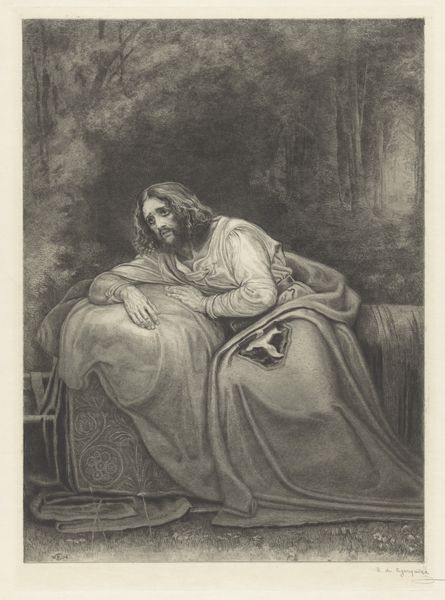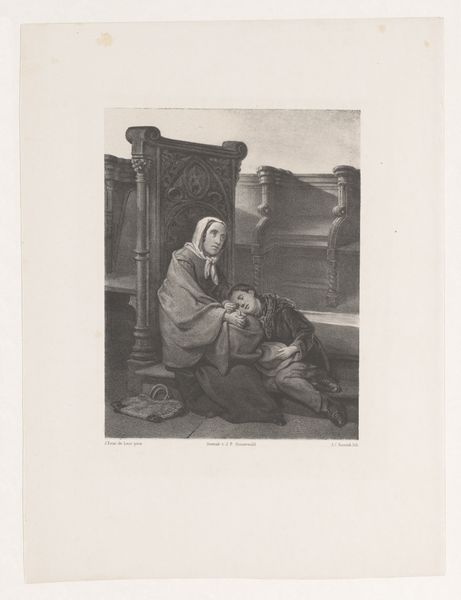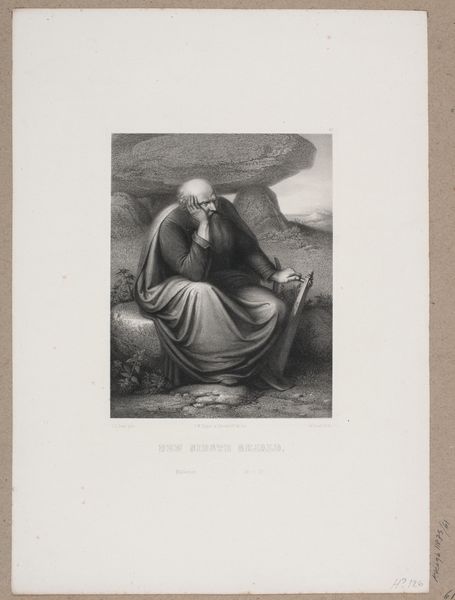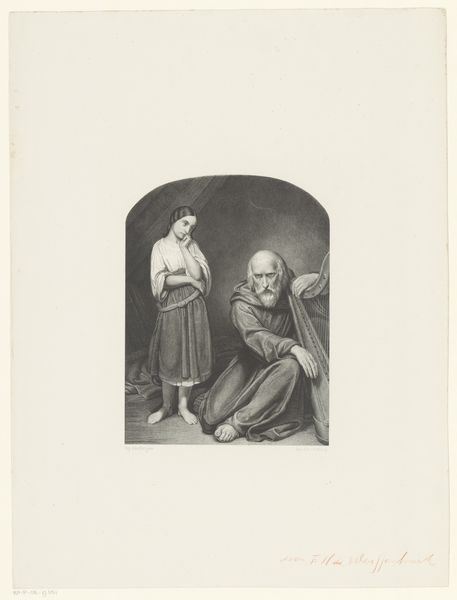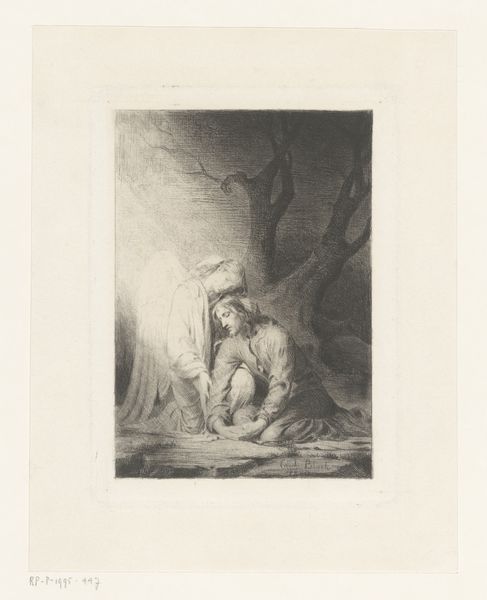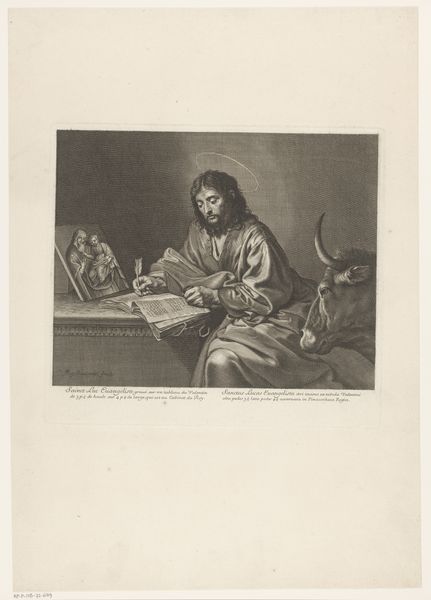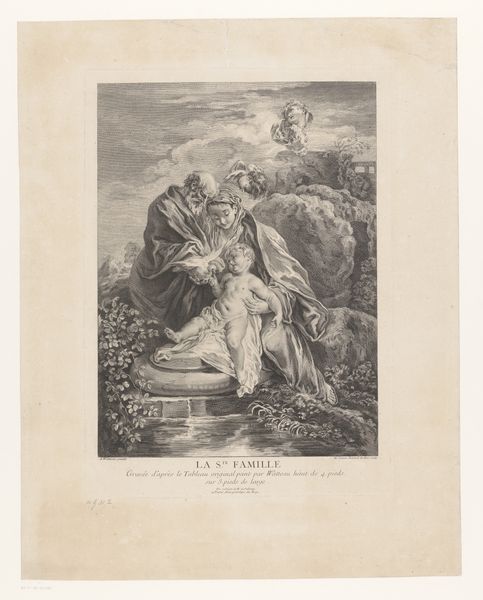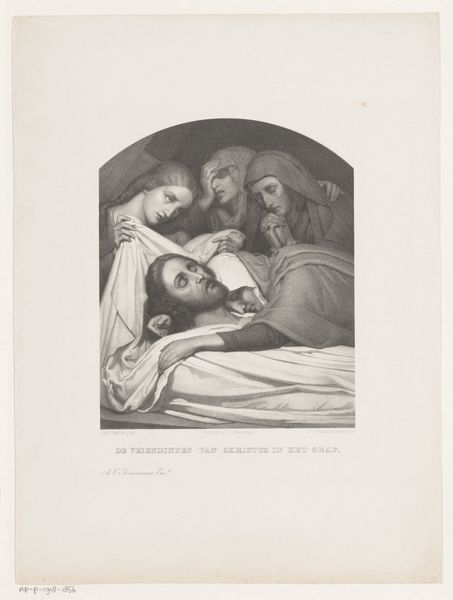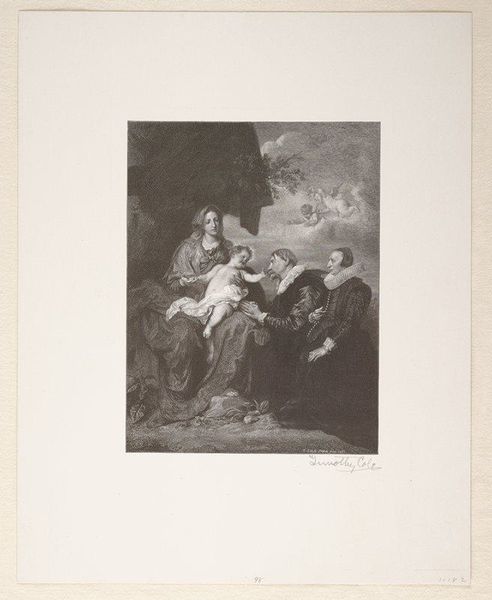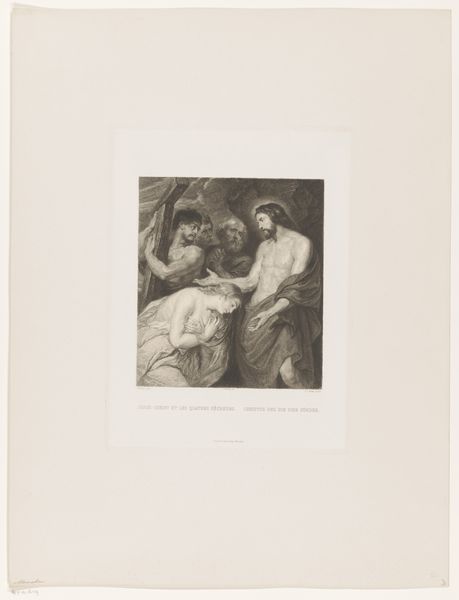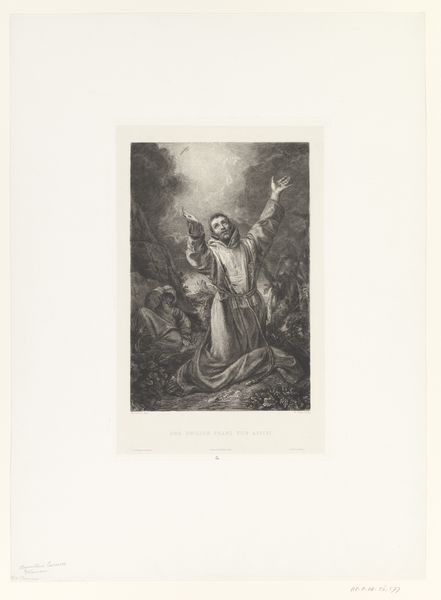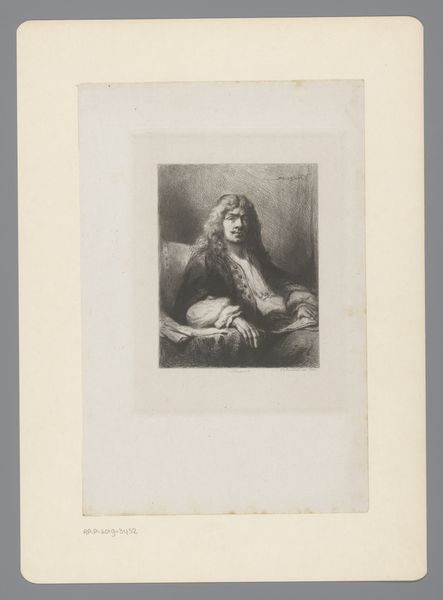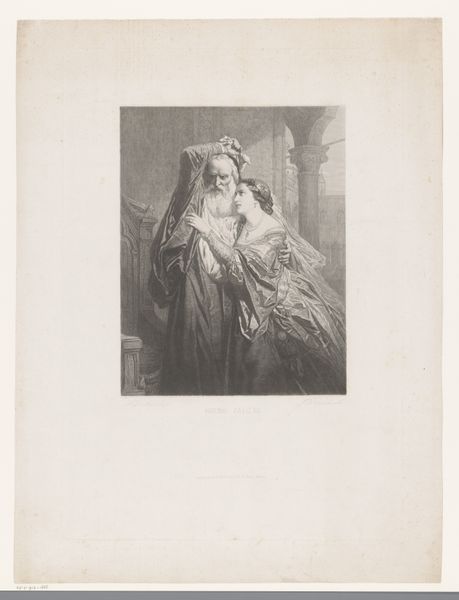
Dimensions: height 360 mm, width 270 mm
Copyright: Rijks Museum: Open Domain
This print from the 19th century by Johannes Christiaan d' Arnaud Gerkens depicts Faust in his study. It visualizes a key moment from Goethe’s play, where Faust contemplates the futility of knowledge and summons Mephistopheles. The image creates meaning through its visual codes, reflecting the cultural anxieties of its time. Made in the Netherlands, a country with a strong tradition of moralizing art, Gerkens' Faust speaks to the 19th-century obsession with progress and its discontents. The rise of industrialization and scientific advancement led to a sense of alienation and spiritual crisis, mirroring Faust's own dissatisfaction. We can understand this print as a commentary on the social structures of its time, specifically the changing role of the intellectual in a rapidly modernizing society. Through careful archival research and attention to the historical context, we can gain a deeper understanding of art as something contingent on its social and institutional conditions.
Comments
No comments
Be the first to comment and join the conversation on the ultimate creative platform.
